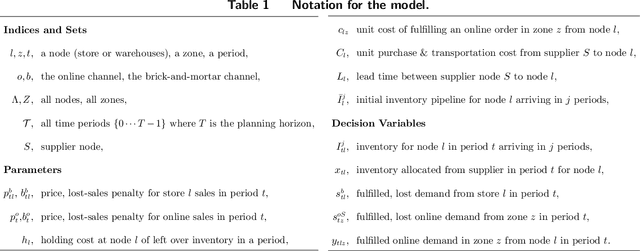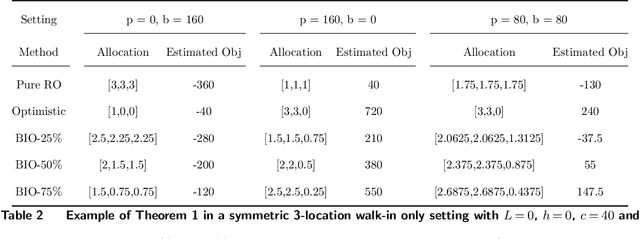An Optimistic-Robust Approach for Dynamic Positioning of Omnichannel Inventories
Paper and Code
Oct 17, 2023



We introduce a new class of data-driven and distribution-free optimistic-robust bimodal inventory optimization (BIO) strategy to effectively allocate inventory across a retail chain to meet time-varying, uncertain omnichannel demand. While prior Robust optimization (RO) methods emphasize the downside, i.e., worst-case adversarial demand, BIO also considers the upside to remain resilient like RO while also reaping the rewards of improved average-case performance by overcoming the presence of endogenous outliers. This bimodal strategy is particularly valuable for balancing the tradeoff between lost sales at the store and the costs of cross-channel e-commerce fulfillment, which is at the core of our inventory optimization model. These factors are asymmetric due to the heterogenous behavior of the channels, with a bias towards the former in terms of lost-sales cost and a dependence on network effects for the latter. We provide structural insights about the BIO solution and how it can be tuned to achieve a preferred tradeoff between robustness and the average-case. Our experiments show that significant benefits can be achieved by rethinking traditional approaches to inventory management, which are siloed by channel and location. Using a real-world dataset from a large American omnichannel retail chain, a business value assessment during a peak period indicates over a 15% profitability gain for BIO over RO and other baselines while also preserving the (practical) worst case performance.
 Add to Chrome
Add to Chrome Add to Firefox
Add to Firefox Add to Edge
Add to Edge